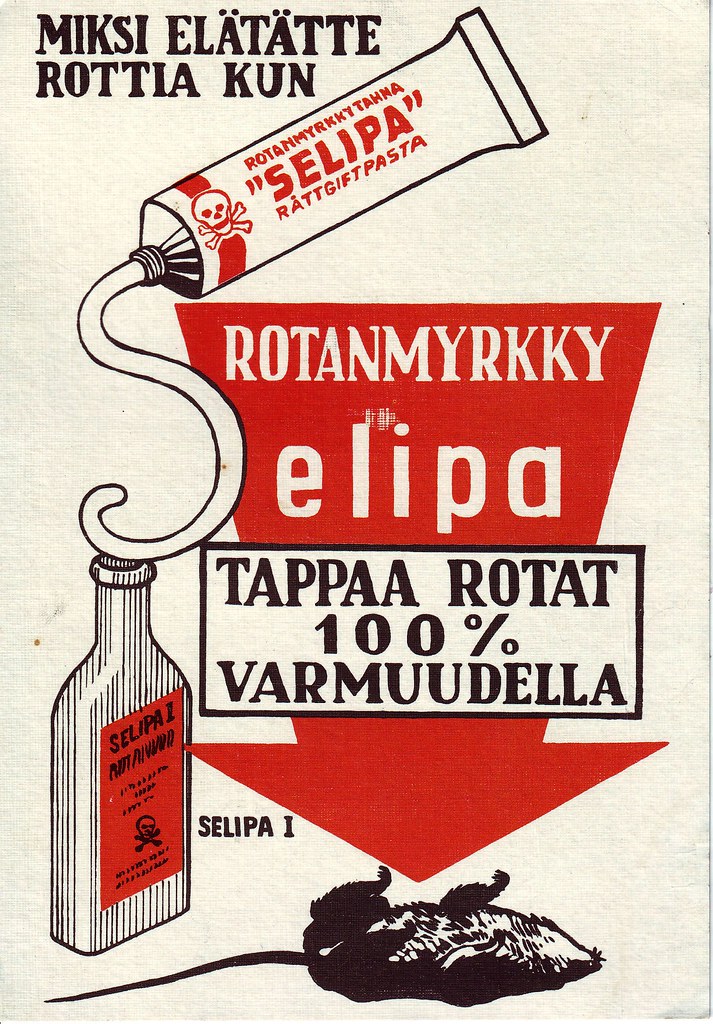I've become extremely sensitive - perhaps 'testy'(an American word for what someone like me gets when I'm really irritated and grouchy) about seeing or hearing the words 'blood thinner.' I've even seen the words on sites where the professionals who use them SHOULD KNOW BETTER.
Rat Poison is, still, partially accurate. There was a time when warfarin was put into little critter (like rats and mice) food, and caused them to die from internal bleeding. These 'rat poisons' didn't just kill the rodents who ate them - they worked their way up the food chain, killing whatever ate them - birds of prey, and mammals all the way up to cougars and other large cats. I don't think it's still being used (or not commonly). Plus, FWIW, there are some species of rat that have adapted to warfarin - it no longer kills them - they've apparently developed other pathways for forming clots.
The word 'anticoagulant' is a good, more accurate alternative to the incorrect 'blood thinner.' It adequately describes that it works 'against' (anti) coagulation. Not everyone understands what it means, unless you say 'blood thinner'(OUCH). But it's fairly easy for many people to figure out.
Perhaps more accurate is the term VKA - Vitamin K Antagonist. This seems to be getting more usage. VKA is specific and descriptive - if you know about what's actually going on. Warfarin messes with the clotting process, which relies on Vitamin K1 to run, by messing (antagonizing?) the Vitamin K in the process. The more VKA effect, the longer it takes to clot.
I doubt that there'll be a day when VKA will be as readily used as (help me) 'blood thinner,' but I certainly hope that, at least, anticoagulant gets more common play.
SO - I've admitted that I'm especially sensitive to the use of some inaccurate terms for what warfarin does.
Do any of these terms bother you much? Is the one that you prefer that society, and why not throw professionals into the pot?, should use?
I'm all eyes. (I tried 'all ears' but my headphones aren't usually hooked to my computer.
Rat Poison is, still, partially accurate. There was a time when warfarin was put into little critter (like rats and mice) food, and caused them to die from internal bleeding. These 'rat poisons' didn't just kill the rodents who ate them - they worked their way up the food chain, killing whatever ate them - birds of prey, and mammals all the way up to cougars and other large cats. I don't think it's still being used (or not commonly). Plus, FWIW, there are some species of rat that have adapted to warfarin - it no longer kills them - they've apparently developed other pathways for forming clots.
The word 'anticoagulant' is a good, more accurate alternative to the incorrect 'blood thinner.' It adequately describes that it works 'against' (anti) coagulation. Not everyone understands what it means, unless you say 'blood thinner'(OUCH). But it's fairly easy for many people to figure out.
Perhaps more accurate is the term VKA - Vitamin K Antagonist. This seems to be getting more usage. VKA is specific and descriptive - if you know about what's actually going on. Warfarin messes with the clotting process, which relies on Vitamin K1 to run, by messing (antagonizing?) the Vitamin K in the process. The more VKA effect, the longer it takes to clot.
I doubt that there'll be a day when VKA will be as readily used as (help me) 'blood thinner,' but I certainly hope that, at least, anticoagulant gets more common play.
SO - I've admitted that I'm especially sensitive to the use of some inaccurate terms for what warfarin does.
Do any of these terms bother you much? Is the one that you prefer that society, and why not throw professionals into the pot?, should use?
I'm all eyes. (I tried 'all ears' but my headphones aren't usually hooked to my computer.

























